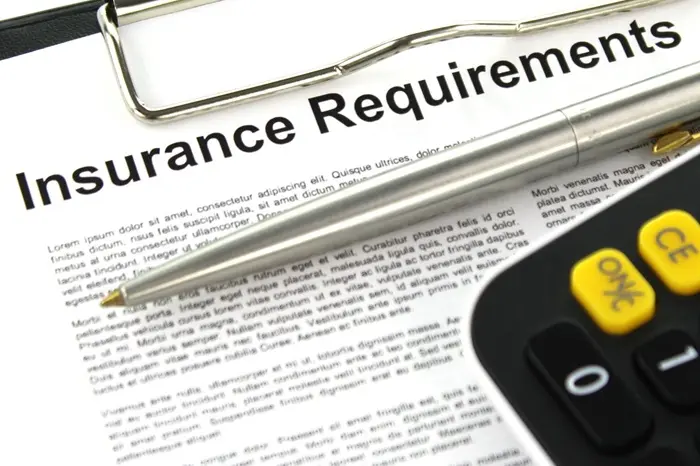Renters insurance is a crucial tool for protecting personal belongings in case of unforeseen circumstances like theft, fire, or damage. While the primary appeal of renters insurance is the protection it provides, understanding the cost structure, including the deductible, is essential to making an informed decision. This article delves into the average deductible for renters insurance, why it matters, and how it can affect your premiums and coverage.
What Is a Deductible in Renters Insurance?
Before diving into the specifics of average deductibles, it is important to understand what a deductible is in the context of renters insurance. A deductible is the amount of money you pay out-of-pocket toward a claim before your insurance policy kicks in. If your insured property is damaged or stolen, the deductible is subtracted from the payout.
For example, if you experience a covered loss with a deductible of $500, and your damages amount to $2,000, the insurance company would pay $1,500 (the $2,000 claim minus the $500 deductible).
The Average Deductible for Renters Insurance
The amount you pay for a deductible can vary significantly depending on several factors, including the insurer, policy coverage, and your preferences. However, renters insurance deductibles typically range from $250 to $1,000.
Lower Deductibles: Renters often opt for lower deductibles to reduce their out-of-pocket expenses when making a claim. A deductible of $250 is common among renters looking for smaller financial risks.
Higher Deductibles: On the other hand, those willing to take on a higher deductible—usually between $500 and $1,000—may be able to lower their premiums. This trade-off makes sense for those who do not anticipate filing many claims and prefer to save money on premiums.
Factors Influencing Renters Insurance Deductibles
While the average deductible is typically between $250 and $1,000, various factors influence what you will actually pay. Understanding these factors can help you choose the right amount.
1. Policy Coverage Type
The deductible you choose may vary based on the type of coverage in your renters insurance policy. For example, some policies offer a replacement cost policy, which replaces your belongings at current market value. In contrast, an actual cash value policy accounts for depreciation, meaning you receive a smaller payout. A policy offering replacement cost coverage might have a higher deductible to reflect the increased protection it provides.
2. Premium vs. Deductible Trade-Off
Renters insurance operates under the principle of a trade-off between premium and deductible. A higher deductible can lead to lower premiums because you’re assuming a greater financial risk. Conversely, a lower deductible may mean higher premiums since the insurance company bears more of the risk. Typically, choosing the right balance is a personal decision based on your financial situation and how much risk you are willing to accept.
3. Location
Where you live can also play a significant role in the deductible. Renters in high-risk areas, such as those prone to hurricanes, floods, or earthquakes, may find higher deductibles on certain types of coverage, such as for natural disasters. Some regions, like coastal areas, may have specialized deductibles for specific risks, such as hurricane damage, which could increase the deductible for certain types of claims.
4. Claims History
Insurance providers may adjust your deductible based on your claims history. If you have a history of filing multiple claims, you may be subject to a higher deductible as the insurer may consider you a higher risk. Conversely, those with a clean claims history might be able to secure a policy with a lower deductible, reflecting their lower risk profile.
5. Insurer
Different insurance companies have varying policies when it comes to deductibles. Some providers may offer flexible deductible options that allow you to select a deductible amount that suits your needs, while others may only have preset deductible choices. It’s always advisable to shop around and compare the available deductible options before settling on a particular provider.
Why Does the Deductible Matter?
The deductible plays a critical role in shaping both your out-of-pocket costs and the overall cost of your renters insurance. It is important to consider both the deductible amount and your premiums when selecting a policy, as these two components are interconnected.
Impact on Premiums
As previously mentioned, a higher deductible typically results in lower premiums, while a lower deductible generally leads to higher premiums. This means that if you are comfortable taking on a larger out-of-pocket expense in the event of a claim, you can choose a higher deductible to reduce your monthly or annual premiums. For renters on a tight budget, this trade-off may be appealing, especially if the likelihood of filing a claim is low.
When You Need to File a Claim
A higher deductible can also affect how much you’re willing to file a claim for. For instance, if your deductible is $1,000 and the damage to your property is less than that amount, you may decide not to file a claim because it would not be cost-effective to do so. On the other hand, if your deductible is only $250, it may make sense to file claims for smaller amounts since you will only need to pay a small out-of-pocket cost.
The Risk of Underinsurance
While opting for a higher deductible can reduce your premium, it’s essential to ensure that you aren’t underinsured. If you choose a deductible that is too high for your budget, you may face financial difficulty when you need to make a claim. It’s crucial to find a deductible amount that strikes the right balance between affordability and coverage.
How to Choose the Right Deductible for Your Renters Insurance
Choosing the right deductible requires you to assess both your personal financial situation and your comfort with risk. Below are some tips on how to select an appropriate deductible.
1. Assess Your Financial Situation
Consider how much you can comfortably afford to pay out-of-pocket in the event of a claim. If you have a solid emergency fund, you might opt for a higher deductible to save on premiums. On the other hand, if you are living paycheck-to-paycheck or do not have much in savings, a lower deductible might be better suited for your needs.
2. Understand the Potential Costs
Before choosing a deductible, understand the potential costs of a claim. Consider the value of your belongings and how much you could realistically expect to pay for repairs or replacements. If the total value of your personal property is high, a higher deductible may be worth it, as long as you can afford the out-of-pocket expense.
3. Review Your Coverage Needs
If you’re looking for comprehensive coverage that protects a wide range of risks, you might opt for a lower deductible. However, if you’re only seeking basic coverage for certain types of incidents, a higher deductible might be more appropriate. Always review the type of protection your renters insurance policy offers and make sure it aligns with your needs.
4. Evaluate Your Risk Tolerance
Your personal comfort with risk plays a significant role in choosing your deductible. If you prefer lower risk and want more predictability in your out-of-pocket costs, you may prefer a lower deductible, even if it means higher premiums. If you’re willing to take on more risk to lower your monthly payments, a higher deductible may be the better choice.
5. Compare Different Insurance Providers
Different insurance companies may offer varying deductible options, so it’s essential to shop around. Make sure to compare not just the deductible, but also the coverage limits, premiums, and customer service before committing to a policy.
Conclusion
Understanding the average deductible for renters insurance is essential when making decisions about coverage. While most deductibles range from $250 to $1,000, the right choice depends on various factors, including your financial situation, risk tolerance, and the type of coverage you require.
By assessing these factors and comparing different providers, you can find a renters insurance policy with a deductible that fits your needs. Ultimately, whether you choose a higher or lower deductible, the goal is to ensure that you are financially protected in the event of an unexpected loss, while balancing affordability with adequate coverage.
































